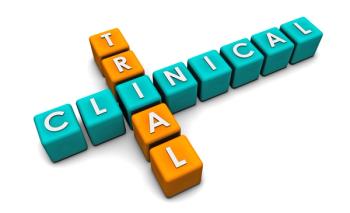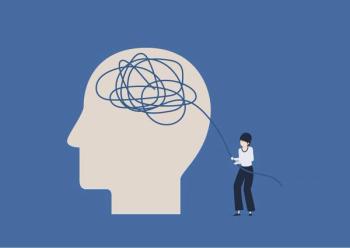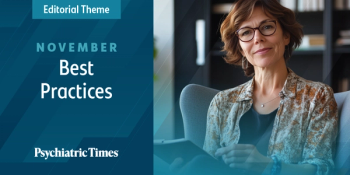
'I Feel I Am Successful When…'
Gastroenterologist George Ferenczi escaped the Iron Curtain as a boy. Now he tries to justify his luck, and life.
I am most fortunate. I grew up with angels in my life.
A doctor who took me into his overcrowded clinic when I was paralyzed for months with polio, and worked with me until I was able to walk without braces. A soldier who captured my father and me as we were fleeing in the night across the Iron Curtain, and instead of turning us into the authorities carried me on his back across a half-frozen river to freedom. A dentist who treated my teeth - much neglected by a system that didn't have the resources for such niceties - free of charge. A parish priest who paid for a new immigrant's education of out of his own pocket. A bespectacled YMCA staffer who gave me the skills and encouragement to survive as a stranger in a strange land. Angels all.
Most importantly, though: my parents.
I remember them with immense respect for who they managed to be, given the severe exigencies of their war-torn lives, and with love - their greatest gift to me. Their love enveloped me in a cloak that is with me to this day. She set me free, literally - sending me into the arms of a free world, knowing that she may never see me again, so that I could escape the tyranny that bound us all at the time. He worked tirelessly to make a new, better life for us. She gave me humor and grace, the ability to love that which is beautiful, to sorrow over another's pain. She taught me the importance of friendship and the need to help another whenever I could. He gave me determination and perseverance, showed me the satisfaction to be found in a job well done, and taught me that only my best effort was acceptable. Neither one was perfect, and as I grew up, I slowly learned to forgive them for that. And as I matured, and developed the ability to see people and the world from several perspectives, I came to realize that they were, indeed, extraordinary people.
When I was considerably younger, I had a circle of friends with whom I would get together monthly. We were all survivors of some calamity or tragedy, be it war, physical trauma, or a major illness. Each meeting would start off with a question: "How do you justify your life?" We would then go around the table, giving our answers, and receiving comments and questions in return. This exercise proved to be life-altering for many of us. It gave us a chance to acknowledge our good fortune and remind ourselves that our survival was not necessarily due to our own skills and preparation, but rather to random chance, fate, or God's will. What we all shared was a sense of obligation to ourselves, and to the rest of the world, to give something back for our good fortune, to give meaning to being survivors.
We were looking for a narrative to make sense of the randomness of life. Why are we here, when many others who were in similar situations are not? What we all shared was a sense that we had been given a gift, and we had the need to give back.
I have been practicing medicine, as well as teaching medical students and house staff, for more than three decades. People bring me their health problems, some of which are curable, many of which are treatable, all of which need to be made endurable. There certainly is satisfaction in diagnosing a rare disorder, especially one with a potential cure, but most medical practice deals with more pedestrian illnesses, such as arthritis, diabetes, psoriasis, and irritable bowel syndrome - conditions which are not likely to be cured, but can only be ameliorated.
Every week I see someone in my office whose life plans are suddenly and drastically changed by a diagnosis of cancer or similar malady. It is with the chronic and the incurable that we physicians face our greatest challenge. It is then that we must help our patients develop a new narrative about life and its meaning. It is here that we can inform of that which is possible and that which is not in a manner that doesn't destroy hope but also does not give false assurances. We can teach how to refocus on the things that are still possible rather than on what has been irretrievably lost. We can and should offer reassurance that we will never abandon a patient as "hopeless," but will be at his side always doing the things that make medicine a noble profession - if not curing, then relieving pain, easing suffering, offering compassion. I think I'm successful when I am achieving these goals at least in some measure, when I can sense that someone's fear has been diminished or abolished, when a patient or family member says, "thanks for not making us feel alone."
In order to meet these goals, we need to have a better understanding of the human condition; of how individuals and cultures look differently upon health and disease in order to develop a dialogue that's both meaningful and therapeutic. Sadly, our profession is being driven more and more by forces that do not value this goal, even interfering sometimes with the free flowing conversation required to achieve it. An EHR may capture a lot of a patient's symptoms and demographics, but nothing of what makes them a unique person shaped by their upbringing and experience.
I endeavor to teach my students the precepts by which I conduct my practice, and to give them an insight into the personal, medical, and societal forces that are likely to affect their lives. I try to teach them of the importance of balance and of friendships they will need in order to survive in our demanding profession. My wife and I invite each student and their spouse or significant other for a dinner in our home, during which we discuss the personal challenges that medical marriages face. I love when I hear of their later accomplishments or receive notes from them attesting to the value of our endeavors.
No matter how you envision your angel, in the end, I feel most successful when reaching out a hand to another, as, in the words of Luciano de Crescenzo, "We are each of us angels with only one wing, and we can only fly by embracing one another."
George Ferenczi, MD, MBA, is clinical professor of medicine at USC Keck School of Medicine while practicing gastroenterology in Glendora, Calif. In addition to teaching and private practice, he conducts seminars for physicians in financial management.
This article originally appeared in the April 2012 issue of Physicians Practice.
Newsletter
Receive trusted psychiatric news, expert analysis, and clinical insights — subscribe today to support your practice and your patients.







